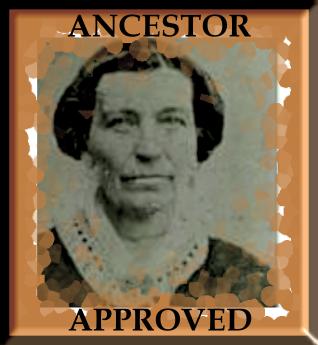“I desire to find my people.” That’s how my great, great-grandmother Tempy Burton begins her June 4, 1891 ad in the Southwestern Christian Advocate. Known simply as the Southwestern, this paper was started in 1877 and covered the African Methodist Episcopal community. Like Tempy, I come from the AME tradition. I was baptized in the AME church where my father is now an ordained minister. Also like Tempy, I desire to find my people. That desire led me to my cousin Monique who I met via email a year ago on June 3, just shy of the anniversary of Tempy’s ad. Great minds think alike because initially, Monique thought we should put an ad in an Ocean Springs, Mississippi paper where our people are from with the headline “Looking for the Burtons.” But we figured a blog was cheaper with a farther reach, so Finding Josephine was born. Thanks to the Southwestern and a good Samaritan named Shannon, we all found our people.
The Southwestern ad appeared in a column called “Lost Friends” which helped former slaves find their lost family, separated by slavery. Tempy’s humble, heartfelt petition names her mother, Eliza Burton, her sisters, Nancy, Polly and Liberia Burton, a brother, Albert Burton, and two aunts, Peggie Manrow and Bettie Matthews.
I’ve clung to the hope that I would be able to take my research back another generation and find Tempy’s parents, but I knew the chances were slim. Like Tempy, her parents would inevitably be slaves whose names and places of birth were a mystery to me. If I did find either of them, I figured it would come way down the research road when my kids were older and I could steal a few days to take a genealogy jaunt to North Carolina where Tempy’s owners come from. Even then, they would only turn up after many sweaty afternoons in the bowels of a municipal office, bent over ancient, dusty deed books or wills. (I can hear all you genealogy junkies out there getting excited just at the thought!) But instead, with one email from a woman I’ve never met who loves historic newspapers, impassioned pleas, and combing the AfriGeneas African-American genealogy website, I’ve reclaimed an entire generation of my enslaved ancestors: A third great-grandmother, two third great aunts, three great, great-aunts, and a great, great-uncle. Now, I even know the names of the people who owned this earlier generation of my Burton family. The ad said, “My mother, sister Nancy, Bro. Albert, aunt Bettie, and aunt Peggy lived on the same plantation and belonged to Dr. Sterling’s people. Liberia and Polly belonged to Dr. Robert Hilyard. Liberia was salivated when a child. I left them in Attakapas, La.” (So there is still a dusty records office somewhere in Louisiana in my future where I will be looking for Drs. Sterling and Hilyard and deciphering the meaning of “salivated.”)
I barely dared to believe I’d find Tempy’s parents. But I never imagined I’d read Tempy’s personal thoughts in print. A slave until she was in her 40s, Tempy never learned how to read or write. (A 1900 census states she could do neither). But someone (probably her son, Alfred or daughter Josephine who lived near their mom in Ocean Springs, Mississippi) carefully wrote her petition and sent it to the Southwestern. And Shannon, 120 years later, struck by Tempy’s quest, took a chance, checked out the AfriGeneas message boards to see if anyone today was looking for her the way she looked for her people back then.
And here we are.
The treasure for me is not only that I now know the names of my great, great-grandmother Tempy’s mother, siblings, and aunts but that the kindness of strangers that keeps raining down on me on this journey has helped me make a new friend. She needs her own post, so I’ll tell you about Shannon and how she found Tempy’s ad through the New England Historic Genealogical Society next time. Until then, here’s Tempy’s ad and the follow-up:
Southwestern Christian Advocate – June 4, 1891:
Mr. Editor:
I desire to find my people. Mother’s name was Eliza Burton, sisters, Nancy, Pally, and Liberia Burton. I had a brother Albert Burton who died, and two aunts, Peggie Manrow and Bettie Matthews. My mother, sister Nancy, Bro. Albert, aunt Bettie, and aunt Peggy lived on the same plantation and belonged to Dr. Sterling’s people. Liberia and Polly belonged to Dr. Robert Hilyard. Liberia was salivated when a child. I left them in Attakapas, La. Any information concerning them will be thankfully received. Address Mrs. Tempy Burton, Ocean Springs, Miss., care W.R. Stewart, Esq.
***********************
Southwestern Christian Advocate – August 13, 1891:
Dr. A.E.P. Albert:
Dear Brother: The Southwestern has been the means of the recovery of my sister, Mrs. Polly Woodfork and eight children. I owe my joy to God and the SOUTHWESTERN, and wish the editor success in getting 1,000 cash subscribers in the next thirty days. I will do all in my power to get all the subscribers I can. God bless Dr. Albert and crown him with success. Mrs. Tempy Burton
*My new friend’s name is Shannon, not Sharon as I initially wrote. All the euphoria over the find clouded my brain. Sorry Shannon!












